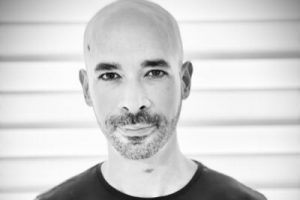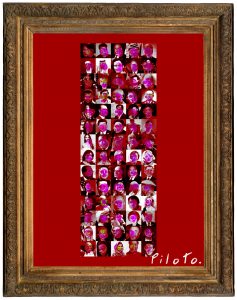
Obdulio Piloto is co-founder and CEO of Entopsis, a diagnostic startup based in Miami. He received his doctorate in cellular and molecular medicine from the Johns Hopkins University School of Medicine in 2006 and is a supporter of FastForward U.
Describe Entopsis in five words or less.
Precise, innovative, accessible diagnostics.
Where did the idea for your product, OpsisDx, come from?
Most diagnostic tests are developed to detect a specific disease based on one or a few pre-determined biomarkers. This paradigm results in a discovery bottleneck, as the biomarkers for each disease need to identified, validated and tested in real-world settings. This process is time- and resource-intensive and is why some disorders lack robust diagnostic tests. [Entopsis co-founder] Ian Cheong and I envisioned a generalized platform capable of identifying multiple diseases in a robust and low-cost fashion by avoiding the biomarker discovery bottleneck. We accomplished this by diagnosing diseases through their biomolecular signature instead of disease-specific biomarkers.
Why did you decide to start your own company?
My partners and I wanted to explore radical, creative ideas and bring those ideas to the masses, where they can have the greatest impact, and a startup company seemed like the most logical avenue. I could not imagine receiving funding to explore the radical ideas behind OpsisDx through a grant or budget line-item in a structured company, particularly because we wanted to integrate diverse scientific disciplines, such as material science, chemistry, nanotechnology, engineering and clinical research on a project with almost no literature support.
Starting our own company offered us the freedom to research such a novel project and tap into investors that shared our enthusiasm and desire to make a real difference. We were extremely fortunate early on when Peter Thiel’s Breakout Labs saw the potential in our proposal and provided the starter funds. This early support allowed us to create a minimal viable product and secure additional funding to develop the concept and grow the company.
What was the biggest challenge or surprise when you started?
I realized how ill-prepared we were at handling the non-scientific aspects of running a biomedical company, particularly fundraising. We had no experience creating investor slide decks, projections or even figuring out a fair company valuation until a former graduate school classmate from Johns Hopkins, George Huang, shared his expertise. [Huang is now CFO of Entopsis.]
Where do you see Entopsis in five years?
The company continues to grow at a healthy and steady rate. In five years, we project commercialization of several products and leading the way in the field of personalized and generalized diagnostic platforms.
How has your time at Johns Hopkins helped you as an entrepreneur?
Hopkins instilled a ‘can do’ attitude. In addition to providing a holistic scientific education, the Hopkins community provided an environment where dogma is challenged and faculty members push trainees to discover new limits in their abilities. I met my two main business partners, and closest friends, at Hopkins, in addition to my life partner.
Why was it important to you to base Entopsis in Miami?
Miami offered us what we needed, which is an affordable place where we could develop our technology. Miami has well-priced space, sufficient talent, low taxes and plenty of entertainment, not to mention enviable weather. These characteristics allowed us to hire and partner with people that helped move the company forward.
What parallels do you see between your art and your scientific research? Your art and entrepreneurship?

‘One Happy Family’ by Obdulio Piloto.
Art and science may require different parts of one’s mind, yet both stem from a burning curiosity and creativity. I use art to convey and explore complex topics through mediums that reach and excite a diverse audience. My art is often based on my scientific research; I use the art to engender interest in deep scientific and cultural concepts with people who might find such topics intimidating. I’m grateful for the support of Artem Scientia Gallery that showcases my art to a global audience, thereby amplifies my team’s scientific efforts.
As an entrepreneur and CEO, I find myself relentlessly promoting my scientific teams, our scientific endeavors, our vision, our supporters and our investors. This same skillset is critical to becoming an artist with patrons willing to spend tens of thousands of dollars on a single artwork. In both cases, I strive to ensure that my supporters get their money and time’s worth.
Why did you want to give to FastForward U?
I wish FastForward U existed when I attended Hopkins! It lowers the barriers we all must cross to become successful entrepreneurs. I look forward to continuing to support FastForward U financially and through mentorship.
What’s the one piece of advice you would give a student entrepreneur?
Don’t overthink it. The naysayers will always have many reasons, some rational, as to why entrepreneurship can be a mistake.